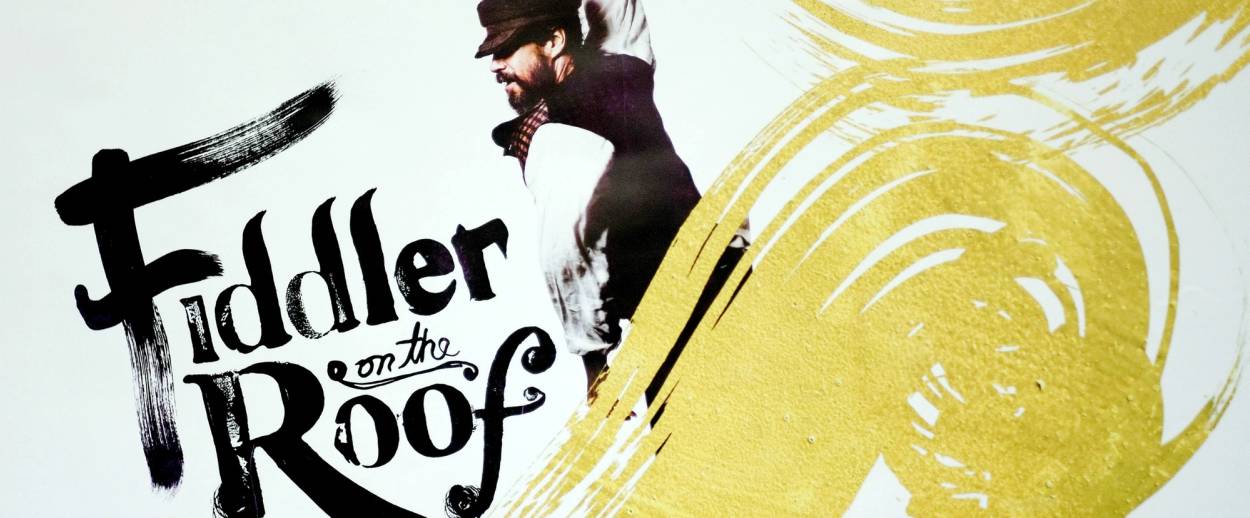Carrying On Tradition
Director Bartlett Sher and Danny Burstein, who plays Tevye, have reinvigorated ‘Fiddler on the Roof,’ now in its fifth run on Broadway




I’ve seen a number of Fiddler productions over the years and find they tend to blend into one amorphous hora. I don’t recall many specifics from the Jerome Robbins/Zero Mostel original I saw in 1964, other than that Mostel’s portrayal of Tevye was a not-too-distant cousin of the Max Bialystock he would creat for Mel Brooks a few years later. Yes, I know about Topol, and Herschel Bernardi, and Theodore Bikel, but I would venture to say that Danny Burstein, who plays Tevye in the the current production of Fiddler, which recently opened for a fifth run on Broadway, might be the finest Tevye I have ever seen, and among the finest imaginable. Burstein brings a strength and dignity to the beleaguered father of five daughters, without sacrificing an iota of the play’s warmth and humor, or detracting at all from its tragedy. He has a powerful singing voice, presence, warmth, spectacular timing, along with the ability to pronounce the gutteral “ch” sound, and the other phrases so important to the authenticity of this characterization.
There was some criticism of the 2004 Broadway revival, starring (the gentile) Alfred Molina as not being “Jewish enough,” which is hard to believe in a play containing more Yiddishkeit than this week’s Torah reading. So director Bartlett Sher, who discovered as a teen that his father was Jewish, has created a framing device that powerfully places the work in historical context; the passage of time, the tragic persistence of anti-Semitism, and the march of assimilation, all conspire to make the travails of Tevye echo contemporaneously. Sher treats this Fiddler as the classic it is, but by tamping down the campier elements—even Anatevka’s rabbi and matchmaker Yente are portrayed with more dignity than I’ve seen—the tragedy of the banishment from the “intimate, obstinate” home, combined with the audience’s knowledge of what was to come not-too-many-years later, is as powerful as ever. Sher’s sensitive pacing and direction endow each song with freshness, and if there was a dry eye in the house at the end of “Do You Love Me?” it was nowhere near my seat. The applause and cheers following number after number—Tevye’s Dream, and Tzeitel and Motel’s wedding scene, to name the two best examples—literally shook the theater.
However, there’s always something to take away from Fiddler, and the ultimate irony made concrete in this return visit is that the expulsion from Anatevka chronicled by Sholom Aleichem saved the lives of its residents because the Jews who remained in the Pale of Settlement met a far worse fate at the hands of Adolf Hitler, than that imposed by the Tsar they sought to “keep far away from us.” I approached the new production of Fiddler on the Roof gingerly, remembering the words of New York Observer critic John Heilpern in 2004: “…One more rousing rendition of If I Were a Rich Man and I might shoot myself.” However, my regard for Sher’s recent reimaginings of South Pacific and The King and I, won out, and with the success of this Fiddler, he’s now three for three.
Previous: ‘Fiddler,’ in the Key of My Heart
Morton Landowne is the executive director of Nextbook Inc.